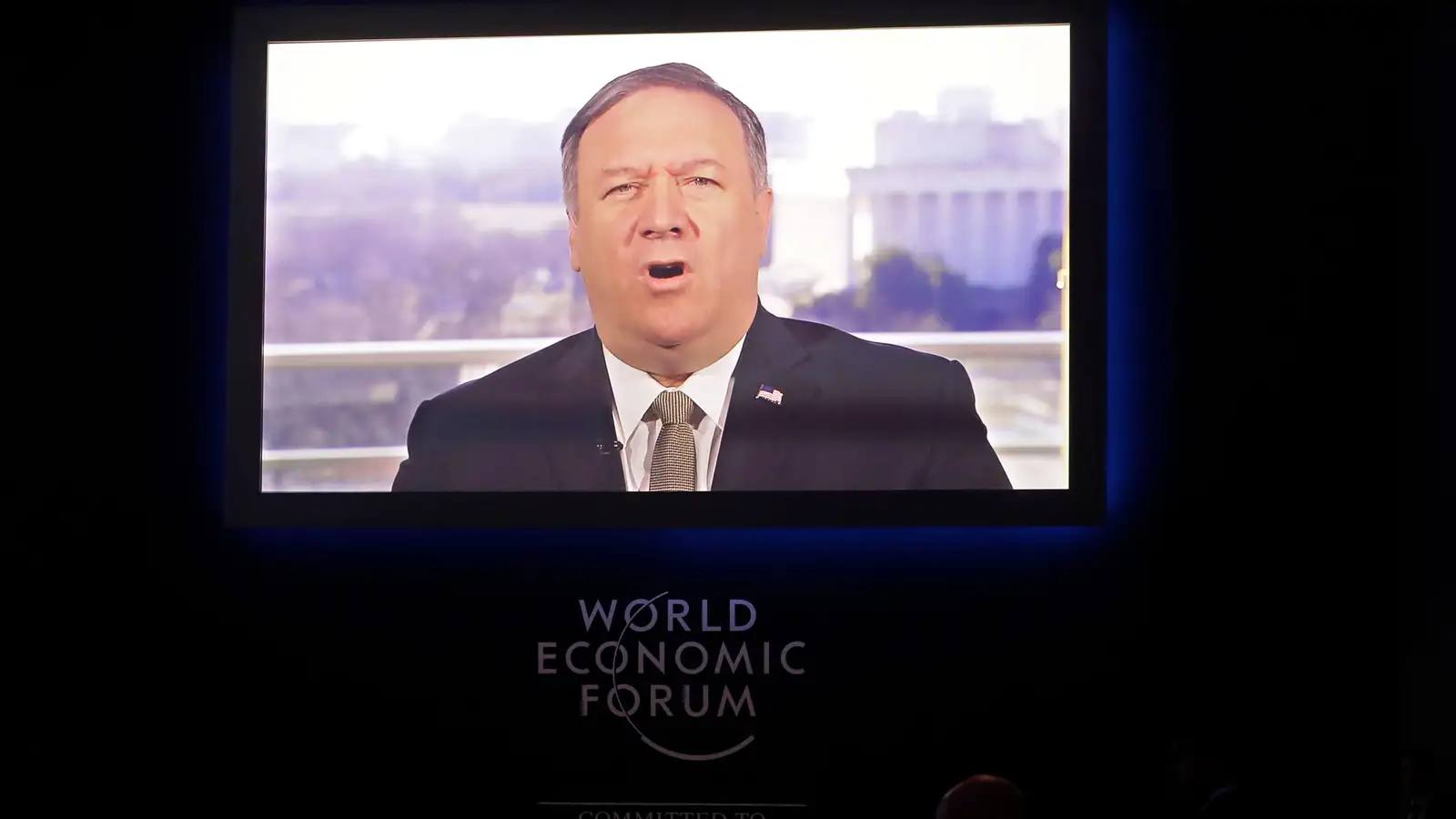Attendees to the World Economic Forum in Davos got to hear US State secretary Mike Pompeo’s take on the state of global affairs Tuesday (Jan. 22). His comments, delivered via teleconference from Washington, DC, were peppered with evocative phrases.
He talked, for example, about the ”new winds” that are “blowing around the world” as voters oust politicians who don’t represent their interests.
A few examples of new directions that people have taken: Brexit, the election of president [Emmanuel] Macron in France, the rise of the Five Star Movement in Italy, Mahathir [Mohammad]’s comeback in Malaysia, and of course […] the election of president Donald Trump. In Ohio, Rio de Janeiro, and in Rome, people are asking questions that haven’t been asked, or at least haven’t been taken seriously in an awfully long time.
In the US, under Trump, those “new winds” have led to lower taxes, trade reform, deregulation and the “unleashing of animal spirits.”
It was an odd phrase to choose, not just literally, but because of its history: It’s at the core of Keynesian economics.
Although the expression “animal sprits” has been used for centuries, it was popularized by John Maynard Keynes in his 1936 book The General Theory of Employment, Interest and Money. The British economist introduced the concept of “animal spirits” in a passage discussing human propensity to follow instincts, rather than mathematical calculations. In Keynes’s words, it’s “a spontaneous urge to action rather than inaction, and not as the outcome of a weighted average of quantitative benefits multiplied by quantitative probabilities.” In the worst-case scenario, this enthusiasm can be excessive, and generate economic bubbles.
Yet animal spirits are also fundamental to propel an economy forward, according to Keynes, because they stomp out the fear of failure. Animal spirits lead to confidence, which in turn, generates spending; increased spending leads to a more prosperous economy. “[I]f the animal spirits are dimmed and the spontaneous optimism falters, leaving us to depend on nothing but a mathematical expectation, enterprise will fade and die,” writes the economist (pdf, p. VII).
In other words, if people don’t follow their “animal spirits,” they will fear the worst and act accordingly—for instance, by not spending money. This behavior makes economic depression a self-fulfilling prophecy.
It’s a theory more generally espoused by Democrats, not Republicans, who tend to disparage Keynesian ideas. But Pompeo’s celebration of them shouldn’t come as too much of a surprise. Despite his party membership, Trump doesn’t seem to mind increased government spending, which Keynes also promoted. After all, the budget deficit has grown to nearly $800 billion since he took office.
It’s yet more evidence that Trump, like many of the political movements touted by Pompeo at Davos, is more of a populist than a conservative. His election, Brexit, the rise of Italy’s Five Star Movement and Lega government, as well of Jair Bolsonaro in Brazil and Mahathir in Malaysia, are all underpinned by populism, and in most cases, a dollop of authoritarianism and xenophobia.
